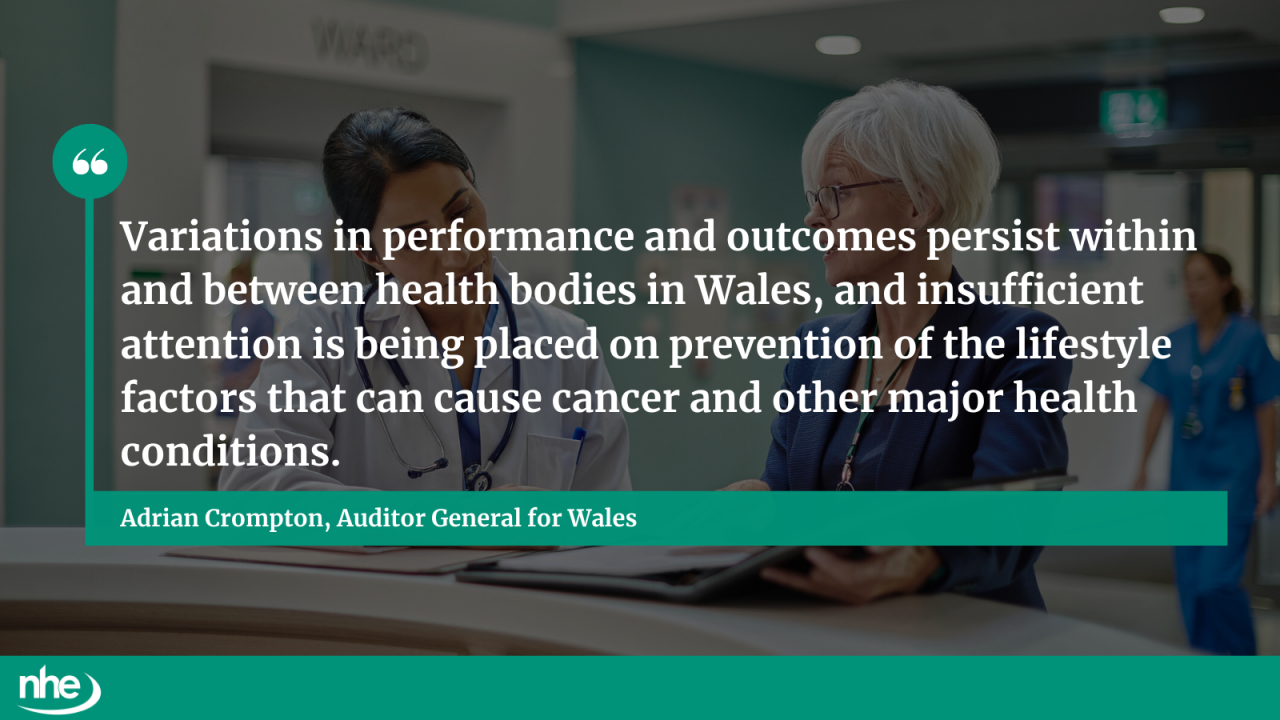Stronger and clearer national leadership is urgently needed to improve cancer services, along with a greater focus on prevention, according to a report by Audit Wales.
The Auditor General's recent report calls for stronger and clearer national leadership to address the ongoing challenges in cancer services across Wales. The report, published today, emphasizes the need for enhanced preventive measures and examines the coherence of national arrangements aimed at driving improvements in cancer services. Despite increased investment, Wales continues to fall short of its national performance target.
The report highlights that no health board in Wales has met the target of 75% of cancer patients starting their first treatment within 62 days since August 2020. On an all-Wales level, this target has never been achieved. Following the pandemic, performance deteriorated and has stabilised since early 2022, with only 52% to 61% of patients starting treatment within the target time. Certain cancer types, such as lower gastrointestinal, gynaecological, and urological cancers, have particularly long waiting times, with some patients waiting over 100 days to begin treatment.
Early detection and diagnosis are vital for cancer survival, and screening plays a critical role in this process. The national bowel screening programme has positively expanded to include more individuals using a more sensitive test. However, there are opportunities to increase the uptake of breast and cervical screening, and decisions about a national lung screening programme are yet to be made.
Cancer survival outcomes in Wales have improved in recent years but remain poor compared to other countries. Wales has the second-highest cancer mortality rate in the UK, only behind Scotland. Survival rates are notably worse for those living in deprived areas compared to more affluent regions.

Auditor General Adrian Crompton said:
“The Welsh Government’s Quality Statement, the identification of nationally optimised pathways and the publication of a Cancer Improvement Plan are all examples of a clear commitment to secure high quality cancer care for the people of Wales.
“However, despite this and increased investment over recent years, too many people are experiencing unacceptably long waits for cancer diagnosis and treatment. Variations in performance and outcomes persist within and between health bodies in Wales, and insufficient attention is being placed on prevention of the lifestyle factors that can cause cancer and other major health conditions.
“The arrangements for the national leadership and oversight of cancer services in Wales need to be clarified and strengthened as a matter of urgency. This must include a clear statement on the status of the NHS Wales Cancer Improvement Plan and how the Welsh Government and NHS Executive expect it to be used, alongside other programmes and initiatives, to shape the improvements which are needed in cancer services in Wales.”
The increasing demand for cancer diagnosis and treatment poses a significant challenge for NHS Wales. The number of newly diagnosed cancers rose by 22% from 2002 to 2021, and suspected cancer referrals have also increased. Despite more than 84% of patients referred with suspected cancer ultimately not having the disease, these referrals still create substantial demand. Additionally, staffing capacity gaps exacerbate the problem, contributing to longer waiting lists for cancer diagnosis and treatment.
To address the challenges facing cancer services in Wales, strong and clear national leadership is essential. The report identifies weaknesses in this area, particularly a lack of clarity regarding the status of the national Cancer Improvement Plan for Wales, launched in 2023. Furthermore, greater clarity is needed concerning the roles of the Welsh Government and the NHS Executive in overseeing and supporting improvement efforts.
Preventing cancer is crucial, as approximately four in ten cancers each year in Wales are preventable. By tackling lifestyle factors that increase cancer risks, there is significant potential to save lives and reduce the burden on NHS resources. These opportunities extend beyond cancer prevention, as many lifestyle risk factors for cancer are also associated with other major conditions affecting well-being and consuming substantial NHS resources.
The Auditor General's report underscores the urgent need for stronger national leadership and a focus on preventive measures to address the challenges facing cancer services in Wales. Without significant improvements in diagnosis, treatment activity, and leadership clarity, meeting the pre-pandemic waiting list targets remains unlikely.
Image credit: iStock



















